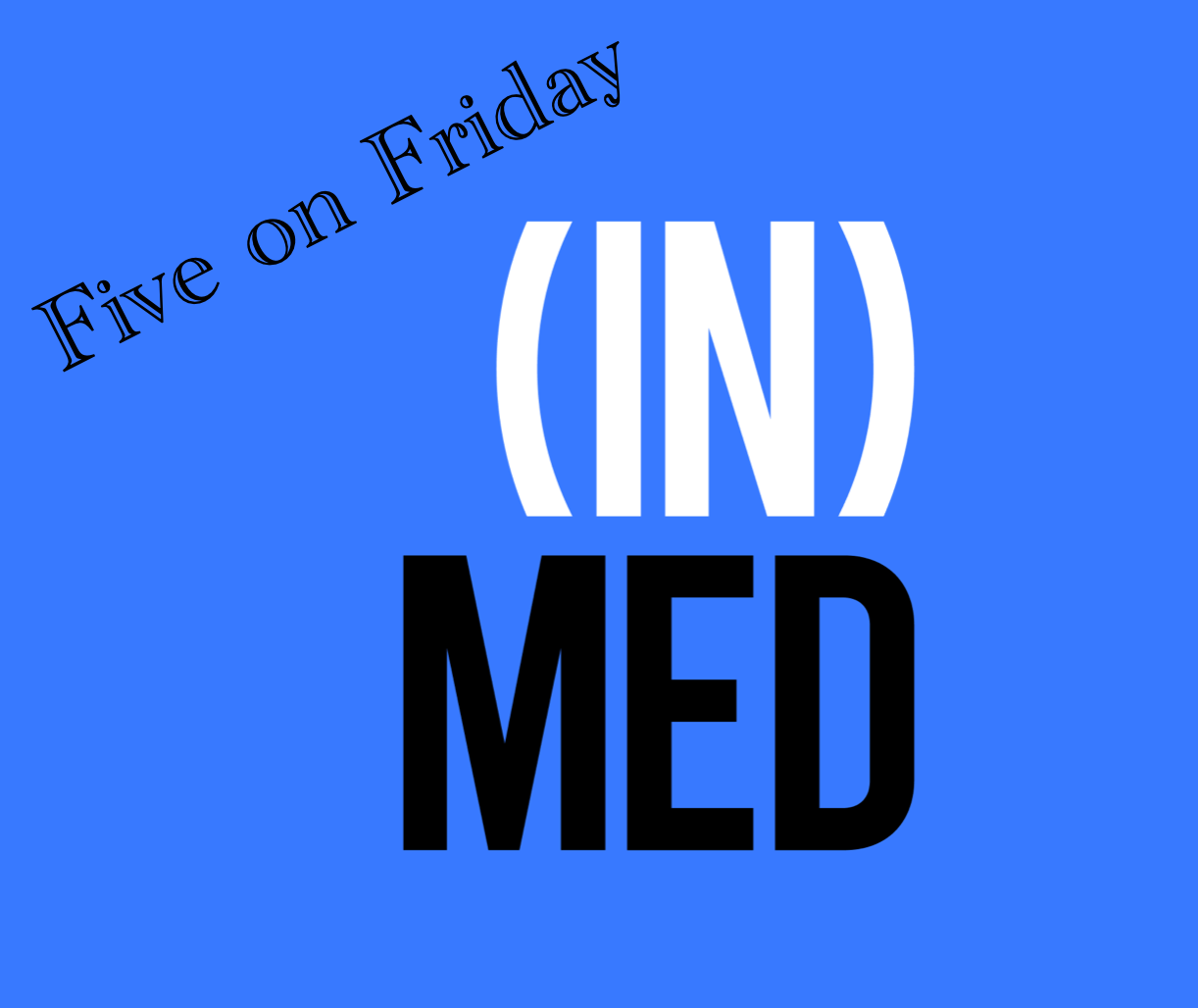Inside Medicine: Five on Friday (March 15, 2024).
This week in medicine, what I'm thinking about, etc. You know, an actual newsletter.
Hello from Mexico! (Thus, I have been quiet since Monday.) We are back with “Five on Friday", the feature where Inside Medicine behaves like an actual medical/health/science newsletter. Below are top-of-mind things that I’m thinking about right now. And please vote in the poll at the end!
If you value this feature—and Inside Medicine in general…
Here we go…
Item 1. News on Covid-19 and cognitive decline.
A recent study in the New England Journal of Medicine found that in a cohort of 800,000 adults in England that cognitive function scores declined after Covid-19 illnesses. While it’s a little murky because of the methodology, the difference could amount to something like three IQ points.
But there’s actually some good news here. The further away from the original Wuhan strain researchers looked, the better the scores were. While the duration of initial Covid-19 symptoms did not seem to influence the scores, the presence of more severe illness did. Patients requiring hospitalization (especially ICU admissions) were much more likely to have measurable cognitive decline, similar to many other illnesses.
Interestingly, multiple infections had only a small negative effect, and that signal was basically rendered meaningless once the variant, initial symptom severity, and duration of illnesses were taken into account. This suggests that multiple infections may be less of a risk for cognitive issues around Long Covid than is feared. The data also indicate that while even asymptomatic and mild Covid-19 cases were associated with cognitive decline earlier in the pandemic, the risk appears much lower now.
Item 2. Daylight savings time and health.
The idea of setting our clocks back an hour every fall seems to be increasingly unpopular. A neat essay in the New York Times summarized some of the health implications. This piece is nuanced, but comes down in favor of permanently keeping things on daylight savings time (i.e., the one we have in the US from March until November). Ultimately, Daylight Savings Time saves lives by way of fewer traffic accidents; fatal accidents increase when it becomes darker earlier in the evening.
Item 3: Covid-19 booster cadence data.
Last year, a team of epidemiologists and I collaborated on a paper in which we found that for older people and severely immunocompromised people of all ages, a routine booster cadence of every 6 months was likely warranted for the foreseeable future—with some groups benefiting from boosters every 3 months. (Behind the scenes: after some helpful reviews at a major journal, we never resubmitted the paper anywhere, in part because eventually the new vaccine formulation was about to be rolled out and we felt the data might be a little stale.)
Well, we did get a little bit scooped. A very fine paper looking at a similar question came out in Nature Communications recently. The authors reached similar conclusions as we did a year ago, albeit via a truly impressive deeper dive. My hat is off to these researchers. That said, the paper inspired me to look at these data again—and my colleagues and I are going to take another gander at things to see if we can answer some questions about who and who does not need frequent boosters.
Item 4: Wegovy approved for heart disease prevention.
You all know I continue to be blown away by how effective semaglutide-based drugs (Ozempic, Wegovy, Mounjaro) are for a variety of conditions, from obesity, to diabetes, to kidney disease, to heart disease. This week, Wegovy received FDA approval for the prevention of major heart disease. This is good news.
Over time, I predict that our understanding of the benefits of these drugs will continue to emerge—often in unexpected ways. Adverse effects remain a rounding error, but we’re keeping an eye on this. As the benefits of these drugs continue to become clear, I predict that analysts who currently disagree with me about whether these drugs are cost effective will change their minds. (Of course, the price could fall a bit and they’d be on board right now.) But, I believe that for many patient populations, the drugs are already cost effective. Once people realize the extent of the benefit, they’ll hop on board.
Item 5. Poll of the Week results.
Here are the results of last week’s Inside Medicine poll. I think I’m probably in the second category, though I’m a lot closer to 2020 level of hygiene than 2019. Thanks for your honest answers!
Item 5a. Poll of the Week for this week!
And here is this week’s poll. It’s March 15th. That’s when I start to think about spring allergies.
That’s it. Your “Friday Five!”
Feedback! Do you like the “Five on Friday” format? Have any ideas for next week’s Poll of the Week? Any great articles you read elsewhere that you want to share with the Inside Medicine community? Other musings or thoughts?
Please contribute to the Comments!







I'm not quite 65 yet, age 63 but immunocompromised so I got COVID shots in March, April, November 2021; May, September 2022; and April, September 2023. I'll get another shot either this month or next.
So I've been fairly close to a six-month cadence all along.
To the best of my knowledge I haven't had COVID yet. I've tested every time I learned somebody near me got it, and after travels. I'm still masking most indoor places away from home and assiduous about hand hygiene.
Did the authors of the new study suggest any support for the every three month vaccine? Why was that your view and who were the “some” that might merit that three month cadence?